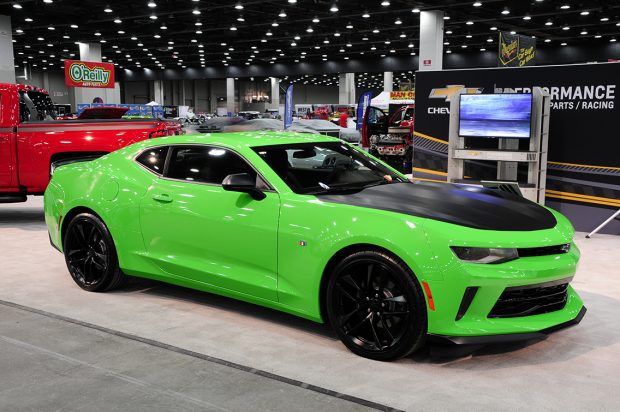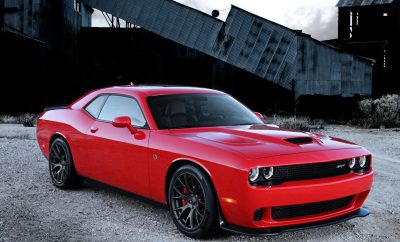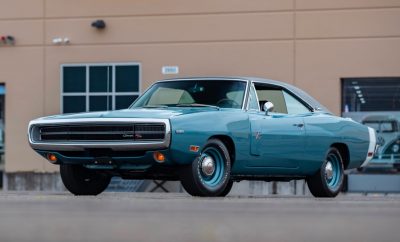Muscle Car
5 Types of Filters in Your Muscle Car and Their Role In Automotive Performance

If the human body has lungs and kidneys, then a car has filters. These components are designed to remove contaminants that can cause damage to parts like the engine, transmission, and ventilation. Filters are also essential in ensuring your car’s top-notch performance.
As such, you should be aware of the different kinds of filters in your vehicle and what they do. It’s also a good idea to know when they should be cleaned or replaced, as well as have a reliable auto parts supplier (like this store, for Chryslers, Dodges, and Jeeps) to ensure you’re getting quality parts.
That said, here’s a list of the five main types of filters you can find in your car and some important things you need to know:
Engine Air Filter
Usually housed in a black box beside or on top of the engine compartment, the engine air filter has one major role: to prevent dust, leaves, insects, and all sorts of other debris and particles from getting into the engine.
With clean air flowing into the engine, you’ll have the ideal fuel-air mixture for better, more efficient combustion. It also greatly improves fuel economy. Finally, the air filter—as long as it’s in good shape—can help minimize harmful exhaust emissions.
Air filters can either be circular, cylindrical, or rectangular/panel style, depending on the model of the vehicle. They can be either dry or oiled, and the filter itself may be made from either cotton, foam, or synthetic materials.
The ideal schedule for changing the engine air filter is indicated in your owner’s manual. Most experts recommend replacing it every 20,000 to 25,000 kilometers, but it could be much earlier if you drive more often or have a turbocharged engine.
Engine Oil Filter
The engine oil filter, as its name implies, filters the engine oil to remove contaminants. This is a particularly important process because the engine oil lubricates several engine components. If the oil is full of debris, it can result in poor performance, frequent overheats, and engine damage.
Fortunately, most auto shops will automatically replace the oil filter when you get the engine oil changed so you don’t have to keep track of multiple dates. Most modern car models have an oil change schedule of every 15,000 to 16,000 kilometers.
Cabin Air Filter
The cabin air filter ensures that the air entering the cabin is free from dust, pollen, exhaust fumes, and other pollutants. Without this filter, your car’s HVAC system will be less efficient; you and your passengers will also be inhaling dirty air, which can trigger allergies and/or worsen respiratory issues.
You may also be surprised to know that the cabin air filter can affect driving visibility. This is because a dirty cabin filter can block airflow into the cabin, which can present problems when you need to defog the windshield and windows.
Unlike the engine air filter which has a fixed location, the cabin air filter can be under the hood, under the dashboard, or behind the glovebox. Thus, it can be a little more complicated to replace. Bring your car to your trusted mechanic once every 25,000 to 50,000 kilometers to have the cabin filter cleaned or changed.
Fuel Filter
You can find your car’s fuel filter, which often looks like a cylindrical cartridge, inside the fuel line. This filter removes impurities like dust and rust from the fuel, protecting the pump and injector from damage. Debris-free fuel also ensures the smooth performance of your car.
Depending on how often you drive, you should change your vehicle’s filter every 2 to 5 years. The ideal schedule will also be printed in the owner’s manual. Do note that older-model cars have shorter recommended intervals between fuel filter changes.
Your car will also exhibit warning signs that it’s time to replace the fuel filter. These include:
- “jerky” engine idling
- difficulties in starting the car
- poor acceleration
- struggling at slow speeds
- stalling
Transmission Fluid Filter
Your car’s transmission system transfers speed and torque from the engine to the wheels. Essentially, it makes your car move. The transmission fluid ensures that the components of the transmission system are properly lubricated, ensuring the smooth transfer (or transmission) of energy.
The transmission fluid filter, therefore, ensures that the transmission fluid is free from debris. It prevents the accumulation of dirt and gunk in the gears, ensuring smooth performance and prolonging the life of the transmission system.
Much like the other filters mentioned on this list, the ideal schedule for changing the transmission fluid filter will be indicated in the owner’s manual. If you can’t find your copy for some reason, a good estimate is about 2 years.
Some cars also have positive crankcase ventilation (PCV) valves, which remove pollutants from the engine crankcase. It’s not strictly a filter, but it acts like one and works together with the breather filter to ensure proper airflow and intake vacuum pressure.
Remember that your car’s performance doesn’t depend on the engine alone. There are also components like the above-mentioned filters that ensure efficiency and safety. Keep these details in mind so you can keep your vehicle running smoothly for years.









0 comments